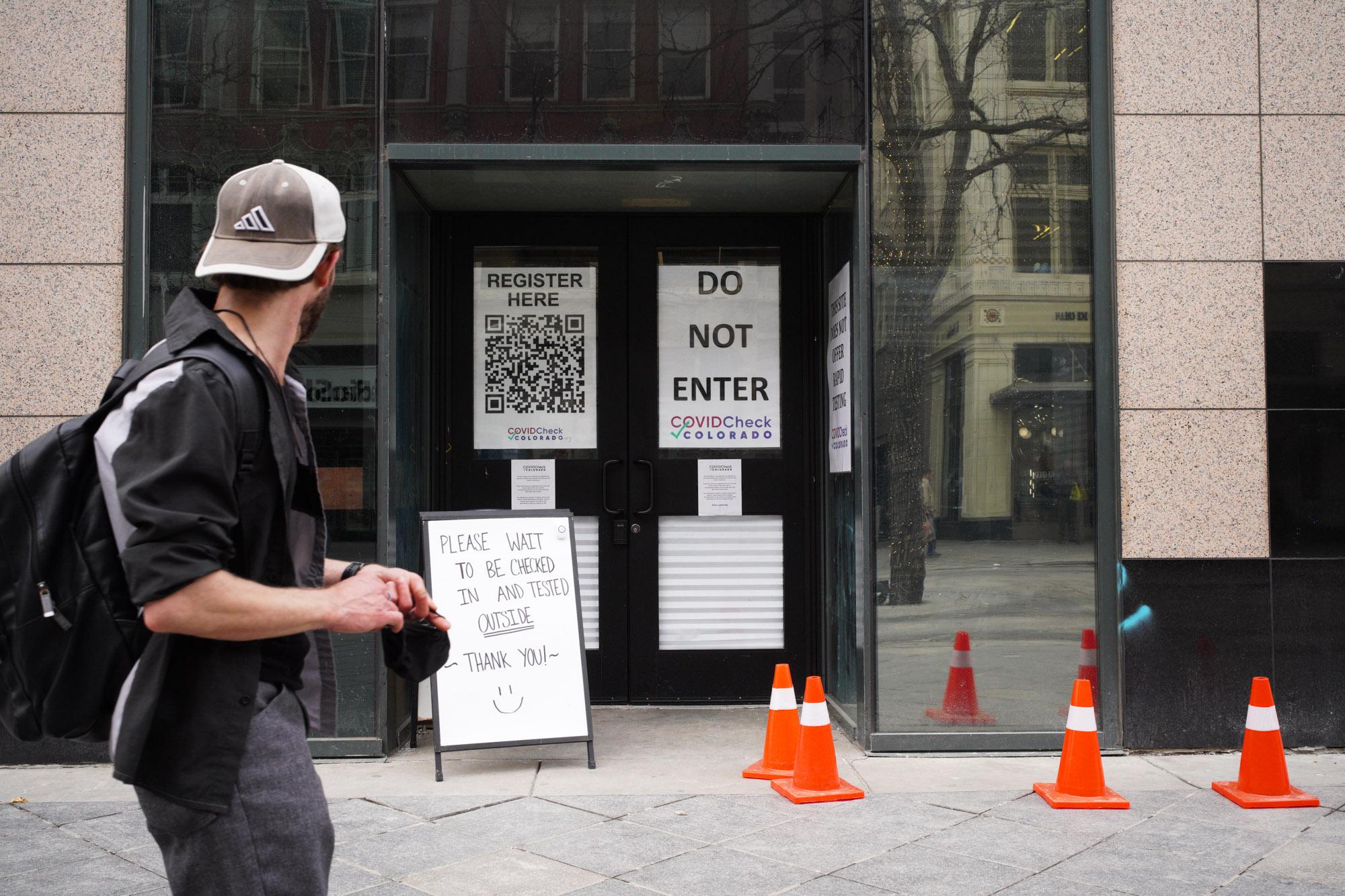
The highly contagious BA.2 omicron subvariant has outcompeted all the other COVID-19 variants in Colorado and now makes up more than two thirds of coronavirus cases in the state.
The CDC “Nowcast” estimates that BA.2 in region 8 that includes Colorado is about 76 percent of cases.
“The proportion of COVID-19 caused by the BA.2 variant is increasing in Colorado as it is in other parts of the nation,” said Dr. Rachel Herlihy, the state epidemiologist, in an email.
At the same time, a pair of key COVID-19 metrics are showing a slight uptick in the latest data. But another critical measure, hospitalizations, has hit a pandemic low in Colorado.
Colorado monitors SARS-CO-V-2, the virus that causes COVID-19, in wastewater. The numbers posted on the state surveillance website for last week, the latest available, show the highest level in two months. But it's still well below the peak of the omicron and delta waves.
The test positivity rate is at 3.5 percent. That's up about a percent since mid-March. It's below the key 5 percent rate — but that figure likely does not include most home tests. And it’s about a tenth of the rate three months ago during the most recent big wave.
The trends come after the state and most communities have dropped precautions, like mask requirements.
COVID-19 hospitalizations in Colorado dipped to a low of 77 on Wednesday. That's down three from the previous week, and nearly 1,600 from the peak of the omicron wave three months ago, a dramatic plunge from the ominous days of mid-January.
“Infections may be increasing modestly, but severe disease is very low,” said Elizabeth Carlton, an associate professor for the school at the CU Anschutz Medical Campus and member of the Colorado COVID-19 Modeling Team that provides epidemiological modeling for the state. “My guesses as to what is driving this: immunity to severe disease due to vaccination and the sheer number of infections we had in Colorado” from December through February because of the omicron wave.
It’s possible hospitalizations could increase as BA.2 spreads, Carlton said.
There are some signals that the number of SARS-CoV-2 infections may be ticking upward right now, she noted, saying “the clearest signal is from percent positivity,” which is up. Reported cases aren’t decreasing, and if you examine them by onset day (a way to smooth out reporting lags), they could be “increasing modestly.”
“All signs are that the number of infections in Colorado remains quite low and any growth we are seeing is likely modest,” Carlton said. Given the growth seen in BA.2 elsewhere in the US and globally, it’s important to watch these numbers closely in the days ahead, she said.
Carlton plans to watch if these indicators keep showing growth and how rapidly. “The good news, this is happening first elsewhere in the country so we can learn from the experience of the Northeast,” she said.
The real bright spot is the continued decline in COVID-19 hospitalizations. Still, hospitalization rates lag behind case rates, so hikes in case rates may not mean hospitalizations initially.
Carlton said the work of the state’s modeling team suggests immunity is high but BA.2 could cause a wave of infections and rise in hospital demand as the subvariant causes infections in the remaining populations susceptible to infection.
“We don’t think this will look anything like the omicron or delta waves,” Carlton said. “But it may be, in some areas, infections are high enough that masks are recommended again for a brief period.”
Herlihy said the health department is watching the trends closely and that cases are plateauing in most places across the state, though they are seeing some slight increases in some counties.
Colorado’s seven-day moving average of cases reported is 372, while 308 cases were reported Tuesday at the 4 p.m. data update. Only 1 percent of available hospital beds are now occupied by confirmed and suspected COVID patients; the seven-day moving average of daily admissions is 16, according to the latest state data.
Herlihy echoed Carlton’s comments, saying health department officials believe that the high levels of immunity in Colorado should prevent another large surge of BA.2 similar to this winter’s omicron surge this winter.
The health department is urging Coloradans to get vaccinated with all recommended doses of the lifesaving COVID-19 vaccine. Anyone, regardless of vaccine status, who experiences symptoms should get tested immediately and isolate while waiting for test results.
People who do test positive should notify people they’ve been in close contact with. That’s especially important if they are at high risk, so they can take steps to protect themselves and the people they are in contact with.









